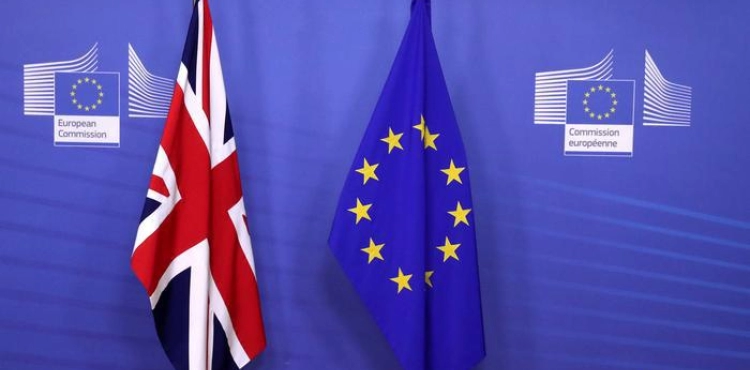From a shortage of food supplies to huge traffic jams and factory closures ... As negotiations falter between London and Brussels three weeks before Brexit from the single market, the United Kingdom is trying to prepare for the chaos that can To arise in the event of its exit from the bloc without an agreement.
Since the beginning of the week, the federations of various sectors have been warning of the expected unrest from January 1, as they are aware that many companies have not prepared for the major leap outside the European Union, whether this is done with or without an agreement.
After a meeting with representatives of the business community on Tuesday, Darren Jones, who chairs the Parliamentary Business Committee in Westminster, said that "British companies are still hoping to reach an agreement to leave the United Kingdom from the European Union, but they will face a disruption from January 1." It was the result of the negotiations.
He added that his interlocutors warned of "a possible shortage of foodstuffs and an increase in prices even if an agreement is reached," and "an accumulation in the costs of our car industry, as well as concerns about financial services."
James Sibley, director of international affairs for the British Association of Small Businesses, told the BBC that he expects "terrible disruptions in January".
Signs of these problems have emerged. For weeks, the ports have been congested and the supply chain has been facing an imbalance.
Many companies are trying to turn over their stocks early to avoid chaos in January or are requesting larger quantities than usual to try to compensate for the delay caused by the build-up of production during the long spring shutdown.
For several days, large traffic jams have been recorded, with lines extending for miles in Dover Harbor.
The situation could get drastically worse if no agreement is reached.
In a "plausible worst-case scenario" report this summer, the British government spoke of lines of 7,000 trucks stuck for two days on the roads. It expected the establishment of large parking spaces and the issuance of permits to enter the Kent area near the port of Dover.
Even the Financial Times reported Thursday about a work cell named "D20" (December 2020) devoted to chaotic scenarios that could arise after January 1, including massive congestion in emergency parking lots in the event of a winter rain. Heavy blackouts and fuel shortages.
The newspaper said that Transport Minister Grant Shaps had hired emergency ferries to deal with road blockages for a period of six months, for 77 million pounds.
Without a trade agreement between Brussels and London, World Trade Organization rules will apply to goods between the United Kingdom and the European Union from January 1. This means that many products will be subject to customs duties, quotas, and administrative procedures that did not exist in the single market.
Every truck that is not fully regular will cause a delay of a few minutes in transit and the accumulation of delays could lead to endless lines around customs.
This is enough to change well-established supply chains, especially the auto industry, as production is distributed across Europe, and relies on stock in a minimum of spare parts to keep costs down.
Any delay threatens to be severely hampered. This is what happened with the Japanese company Honda, which has suspended production at its plant in Swindon since Wednesday for not having enough spare parts, and hopes to resume it Monday.
Only about a third of SMEs say they are ready for Brexit, said James Sigley, citing a study by the Federal Security Office, to its members.
Residents of the United Kingdom are also increasingly concerned about the possibility of food shortages.
Asked by reporters about the possibility of storing food, a government spokesperson this week appeared reassured. "We have a flexible supply chain," he said.
In response to a question about the "D20" mechanism, he replied, "We are preparing for various scenarios (...) at the end of the transitional period and on the pressures that we may face at the end of winter."
The British Employers´ Confederation is calling for a "grace period for rules of origin and product labeling, implementation of border controls".












